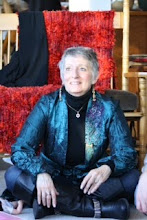Someone asked me, after my blog on co-dependency, if I could write something about co-dependency in children. This is kind of a tough one for a couple of reasons, and actually simple in other ways, to talk about.
First of all, kids are totally dependent on their caretakers and do not begin to have the brain/emotional development to see themselves as separate beings until they hit adolescence, and that growth continues on until the brain is fully developed somewhere between 20 and 25 years old. Their concept of themselves is dependent on what gets "mirrored" back to them by their caretakers. So if Mom or Dad shows love and interest then they believe themselves to be loveable and interesting, if they are told they are good, or smart, or beautiful, for example, a child under about 12 will believe their parent to be correct regardless of what anyone else might say about them.
They are vulnerable, then, to having a parent tell them they are bad or stupid or ugly or evil. They may have parents make requests of them or try to manipulate their behavior to meet the parent's needs based on being told it is the right way to behave or being shamed into believing that they are bad people if the parent isn't happy.
We are usually trained early, in our families, to be co-dependent and put others before ourselves. Some of this training is healthy in that kids need to learn to think about helping others and thinking of others since it is natural for them to be focused on themselves in childhood. Because of their brain and emotional development, kids tend to think they are the center of the universe and everything that happens, good or bad, is down to them. Children need to learn they do have an impact on others as well as that they are not responsible for what everyone else thinks or feels.
Where the training runs afoul is in a dysfunctional family when parents are so busy trying to meet their own unresolved needs that they are not thinking about what is best for their children. Often these parents actually believe that they are doing the right thing as they train their children to feel bad about themselves unless they can "make" their parents happy.
Kids end up walking on eggshells and thinking bad thoughts about themselves which lead them to having a low self esteem which they can only cure by making everyone around them happy. Younger children focus on their parents, teens focus on getting approval from peers and adults look for proof of their value in their love relationships. If they are lucky they get attached to healthy people who can help them find their own values and strengths, but most often they turn to people with similar issues and expectations. If things are bad enough in their family, kids will give up on themselves and look to other acting out kids who help them feel worthwhile and as adults turn to other love dependents who try to get their needs met by them or control them.
What kids need, to help them avoid the co-dependency trap, is help finding their own strengths, beliefs and values. How can you help your child think things through themselves rather than tell them what to think and feel? Ask before you lecture. Ask them what they think before you pronounce a judgement. Ask them how they think they did in school or a project or sport. How would they do it differently if they could do it again? What do they think they would need to do to be a better student, friend, family or community member, team member? They will usually be harder on themselves than you would be. Then you can be loving and attentive and supportive parent and praise them for what they did (good and bad) and for being so clever about figuring out how to grow from the experience.
Another good thing for parents to do is model behaviors themselves. Show your strengths and weaknesses. Let your kids see you struggle with decision-making and fixing your messes. Show them how to have healthy boundaries in their relationships with others and with themselves inside their own heads. Help them understand that no one "makes" anyone feel anything. Be responsible for the stories that you make up about what is happening in your life and that you are making yourself have feelings based on your own interpretation of events. Help them learn to talk their thinking through and see if there are other possible ways to look at things and feel differently.
As their brains develop, as they grow emotionally and have their own life experiences, they will be more equipped to find their own way and be less dependent on others to define them and "make" them happy. They will be more comfortable in their own skin and be more confident in their decision-making and have better problem-solving skills to make it through the rough patches. They won't worry as much about how others are feeling as they will know that everyone is responsible for themselves. They will be able to put themselves first without worrying that this will put someone else last. They will look for healthy people to have in their inner circle and not be bogged down with relationships that go counter to their life goals and values.
Your children will be better able to love themselves and others without fear, and expect and give respect in all their relationships.
Subscribe to:
Posts (Atom)



